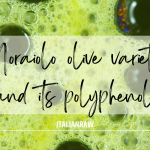
Exploring Olive Oil in Middle Eastern Culture
Olive Oil as a Symbol

Olive oil transcends its culinary use in the Middle East, embodying a legacy of resilience and tradition.
The olive tree, thriving for centuries even under challenging conditions, is a symbol of endurance and prosperity in the region.
Celebrated in folklore, art, and literature, these trees are sacred emblems of peace and vitality. Their presence in cultural narratives often emphasizes a connection to the land and ancestors, enhancing regional identity through artistic representations in celebrations and rituals.
Symbolic Meanings of the Olive Tree in Different Cultures
| Culture | Symbolic Meaning | Usage in Culture |
|---|---|---|
| Middle East | Peace and Prosperity | Religious ceremonies, art |
| Greece | Wisdom and Victory | Olympic crowns, philosophical texts |
| Italy | Fertility and Renewal | Wedding ceremonies, agricultural rituals |
Olive Oil's Historical Role

The historical roots of olive oil are deep and widespread, connecting contemporary societies to their ancient past. Practices of olive cultivation and oil production, inherited from ancestors, date back to early civilizations. Archaeological discoveries, including ancient tools and methods used for olive oil production, reveal its historical significance in daily and ceremonial life. Olive oil also played a crucial role in ancient trade, influencing various aspects of social and political life.
Historical Milestones in Olive Cultivation
Key historical developments that shaped the cultivation and cultural integration of olive oil in the Middle East and beyond.
- 4000 BCE: First known cultivation of olive trees in the Levant.
- 3000 BCE: Expansion of olive cultivation to the Mediterranean basin.
- 146 BCE: Romans enhance olive oil production techniques, spread its use.
- Middle Ages: Olive oil becomes a staple in Islamic medicine and cuisine.
- 20th Century: Modern techniques revolutionize production in the Middle East.
The Cultural Role of Olive Oil

Beyond its historical and symbolic significance, olive oil permeates literature, religion, health, cuisine, and art, reinforcing its role as a foundational element of regional identity. In religious texts, it symbolizes light and purity, used in rituals to signify sanctification and enlightenment.
Literary works employ olive oil as a metaphor for sustenance and healing, while artistic portrayals of olive groves and harvesting scenes reflect its cultural and economic importance.
Olive Oil in Literature and Religion
This table illustrates the various ways olive oil and olive trees are woven into religious texts and literary works, enriching cultural narratives.
| Work | Context | Significance |
|---|---|---|
| The Quran | Mention of olives | Symbol of light, purity |
| The Bible | Olive branches | Peace, new beginnings |
| Ancient Poetry (general) | Descriptions of olive groves | Beauty, sustenance |
Olive Oil and Gastronomy

Olive oil is pivotal in Middle Eastern cuisine, not just as a cooking ingredient but as a cultural staple carrying the essence of tradition in every dish.
It enhances flavors in numerous traditional recipes, connecting present to past generations through culinary heritage. Modern chefs also innovate with olive oil in contemporary recipes, showcasing its versatility and enduring appeal, thus bridging traditional and contemporary culinary arts.
Popular Dishes Featuring Olive Oil in the Middle East
This list of dishes shows the integral role of olive oil in traditional Middle Eastern cuisine, highlighting its versatility and flavor-enhancing properties.
- Hummus: Creamy chickpea dip enriched with olive oil.
- Tabbouleh: Fresh herb and bulgur salad dressed with lemon and olive oil.
- Falafel: Fried chickpea balls often drizzled with olive oil before serving.
- Baba Ganoush: Smoky eggplant dip blended with tahini and olive oil.
- Shawarma: Meat marinated in a mix of spices and olive oil, then grilled.
Health and Values

Middle Eastern societies value olive oil not only for its culinary attributes but also for its health benefits, which align with regional values of wellness and natural living.
Nutritional properties of olive oil, including monounsaturated fats and antioxidants, contribute to heart health and longevity. These benefits are recognized and integrated into daily life and traditional medicine, reflecting a holistic approach to health prevalent in the region.
Health Benefits of Olive Oil
This table details the specific health benefits of olive oil, supported by scientific research, underscoring its value in a healthy lifestyle.
| Benefit | Description |
|---|---|
| Heart Health | Reduces risk of heart disease |
| Anti-inflammatory | Contains oleocanthal, which reduces inflammation |
| Antioxidant Properties | Protects cells from damage |
Sustainable and Ethical Practices

The deep respect for olive oil drives sustainable and ethical practices in its cultivation and production. These practices safeguard the environment and support the livelihoods of local communities, adopting sustainable farming techniques that minimize environmental impact and ensure the viability of olive cultivation for future generations. Ethical production aspects, such as fair labor practices and community involvement, underscore the values of respect and responsibility central to the cultural significance of olive oil.
Sustainable Practices in Olive Oil Production
- Water recycling: Using reclaimed water for irrigation.
- Organic farming: Avoiding synthetic pesticides and fertilizers.
- Tree management: Pruning and managing trees to optimize health and yield.
This list outlines specific sustainable practices adopted by olive oil producers, highlighting their commitment to environmental stewardship.
Spiritual and Cultural Significance

Olive oil holds a special place in the spiritual landscape of the Middle East, revered in various religious and cultural practices. It is used to anoint the faithful and illuminate sacred spaces, symbolizing renewal and divine favor. Olive oil also features in cultural rituals marking important life events, embodying a profound sense of sacredness and tradition.
Ritual Uses of Olive Oil in Various Religions
- Christianity: Used in baptism and other sacraments as a symbol of purity.
- Islam: Featured in health and wellness practices, reflecting prophetic medicine.
- Judaism: Used to light the Menorah, symbolizing divine light and wisdom.
This list explores the spiritual and ritualistic uses of olive oil across different faiths, enhancing its cultural and spiritual importance.

Olive Oil as a Cultural Connector
In conclusion, olive oil in the Middle East is not just about the oil itself but about what it represents. It is a cultural link that ties people to their history, traditions, and each other, enriching not only their food but also their communal and spiritual lives. This exploration helps us appreciate olive oil’s profound impact beyond the kitchen, affirming its place as a vital cultural asset in the Middle East.
explore the richness of olive oil through personal experience.
Here are a few ideas!
1. Host an Olive Oil Tasting Party!
 Bring the subtleties and variety of olive oil flavors to light by organizing your own tasting event. Here’s how to make it a success:
Bring the subtleties and variety of olive oil flavors to light by organizing your own tasting event. Here’s how to make it a success:
- Select Different Varieties: Gather several types of olive oils, perhaps from different regions or featuring different flavor profiles. Look for extra virgin olive oils, as they retain the purest flavors and aromas.
- Prepare Simple Pairings: Serve the olive oil with dishes that enhance its qualities without overpowering them. Freshly baked bread, slices of ripe tomato, or a sprinkle of sea salt on a mild cheese like mozzarella are great companions.
- Tasting Notes: Encourage your guests to discuss what they taste and smell. Notes might include grassy, peppery, or buttery tones, helping everyone become more aware of the oil’s complexity.
DISCOVER MORE
Proper technique for tasting olive oil
When tasting olive oil, it’s essential to use a tasting glass specifically designed for this purpose, as it allows you to fully evaluate the oil’s color, aroma, and flavor. The glass should be tulip-shaped, with a slightly narrowed opening to capture and focus the aromas.
To taste the oil, warm it slightly by holding the glass in your hand and swirling it gently. Next, bring the glass to your nose and inhale deeply, taking note of the aroma. Then, take a small sip of the oil and let it coat your tongue and palate. Swirl the oil in your mouth, allowing it to reach all taste buds, and note the flavor characteristics. Finally, swallow the oil and note any lingering flavors or sensations.
To discover more about olive oil tasting, read here:
2. Cook a Traditional Middle Eastern Dish
 Experience olive oil’s culinary magic by cooking a traditional Middle Eastern recipe. Cooking this dish will not only allow you to enjoy a staple of Middle Eastern cuisine but also understand how olive oil enhances flavor.
Experience olive oil’s culinary magic by cooking a traditional Middle Eastern recipe. Cooking this dish will not only allow you to enjoy a staple of Middle Eastern cuisine but also understand how olive oil enhances flavor.
Here’s a simple one to start:
- Classic Hummus:
- Ingredients: Canned chickpeas, tahini, fresh lemon juice, garlic, and quality extra virgin olive oil.
- Method: Blend the chickpeas, tahini, lemon juice, and garlic in a food processor until smooth. Drizzle in olive oil until the hummus is creamy. Serve with a generous topping of olive oil and a pinch of paprika or za’atar.
 3. Educational Resources
3. Educational Resources
Delve deeper into the story of olive oil with these resources:
- Books: Look for titles like “Olive Oil: A Cultural History” or “Liquid Gold: The Lore and Logic of Using Olive Oil in Mediterranean Cooking.”
- Documentaries: Watch films or shows that trace the history and production of olive oil, which can be found on culinary channels or streaming services.
4. Olive Oil Buying Guide
Make the most of your olive oil experiences with these buying tips:
- Origin: Check the label for the oil’s country of origin. Oils from a single source or region often offer unique tastes.
- Purity: Opt for oils labeled as “extra virgin,” which indicates the best quality and flavor.
- Storage: Store olive oil in a cool, dark place to maintain its quality and extend its shelf life.
By integrating these activities and tips into your life, you not only enhance your understanding of olive oil’s cultural significance but also enrich your culinary skills and sensory appreciation. Enjoy the journey through taste, tradition, and health that olive oil provides.
DISCOVER MORE: To further explore the fascinating world of olive oil and its cultural, historical, and culinary significance:
1. Books on Olive Oil
“Extra Virginity: The Sublime and Scandalous World of Olive Oil” by Tom Mueller
This book explores the complex world of olive oil, providing insights into its history, production processes, and the industry’s often murky practices. It’s a revealing look at the cultural significance and economic dynamics of olive oil.
“Olive Oil: From Tree to Table” by Peggy Knickerbocker
The book is a comprehensive guide to olive oil, including its history, how it’s made, and its varieties. Recipes and tips on how to select, taste, and store olive oil are also included.
“The Olive and the Caper: Adventures in Greek Cooking” by Susanna Hoffman
While primarily a cookbook, this work delves into the cultural history of olives and olive oil in Greek cooking, offering context and recipes that showcase the integral role of olive oil in Mediterranean cuisine.
2. Documentaries
“Liquid Gold: The Story of Olive Oil” (Available on various streaming services)
This documentary takes viewers through the olive groves of the Mediterranean, exploring the traditional methods of olive oil production and its cultural impact in the region.
“The Olive Route: A Mediterranean Odyssey” by Carol Drinkwater
Adapted from Carol Drinkwater’s books, this series explores the history and cultural significance of olives and olive oil across the Mediterranean, offering personal anecdotes and historical insights.
3. Additional Resources
“Olive Oil: A Field Guide” by Judy Ridgway
Ridgway’s book is an essential guide for anyone looking to deepen their knowledge about different types of olive oil, including detailed profiles and pairing suggestions.
“Olives: The Life and Lore of a Noble Fruit” by Mort Rosenblum
This book provides a detailed look at the cultivation of olives and the production of olive oil with anecdotes and historical insights that illuminate the olive’s role in Mediterranean cultures.
DISCOVER MORE: To further explore the fascinating world of olive oil and its cultural, historical, and culinary significance:
1. Books on Olive Oil
“Extra Virginity: The Sublime and Scandalous World of Olive Oil” by Tom Mueller
This book explores the complex world of olive oil, providing insights into its history, production processes, and the industry’s often murky practices. It’s a revealing look at the cultural significance and economic dynamics of olive oil.
“Olive Oil: From Tree to Table” by Peggy Knickerbocker
The book is a comprehensive guide to olive oil, including its history, how it’s made, and its varieties. Recipes and tips on how to select, taste, and store olive oil are also included.
“The Olive and the Caper: Adventures in Greek Cooking” by Susanna Hoffman
While primarily a cookbook, this work delves into the cultural history of olives and olive oil in Greek cooking, offering context and recipes that showcase the integral role of olive oil in Mediterranean cuisine.
2. Documentaries
“Liquid Gold: The Story of Olive Oil” (Available on various streaming services)
This documentary takes viewers through the olive groves of the Mediterranean, exploring the traditional methods of olive oil production and its cultural impact in the region.
“The Olive Route: A Mediterranean Odyssey” by Carol Drinkwater
Adapted from Carol Drinkwater’s books, this series explores the history and cultural significance of olives and olive oil across the Mediterranean, offering personal anecdotes and historical insights.
3. Additional Resources
“Olive Oil: A Field Guide” by Judy Ridgway
Ridgway’s book is an essential guide for anyone looking to deepen their knowledge about different types of olive oil, including detailed profiles and pairing suggestions.
“Olives: The Life and Lore of a Noble Fruit” by Mort Rosenblum
This book provides a detailed look at the cultivation of olives and the production of olive oil with anecdotes and historical insights that illuminate the olive’s role in Mediterranean cultures.









Leave a Reply